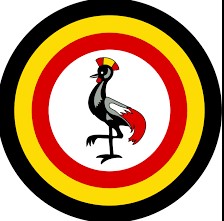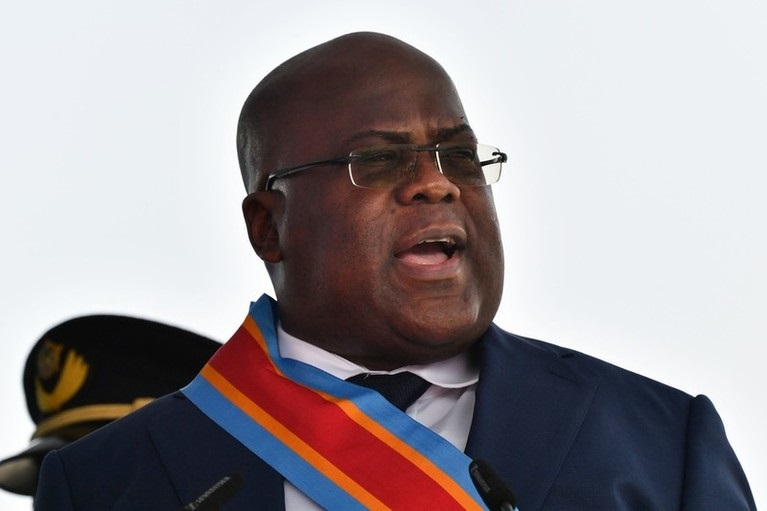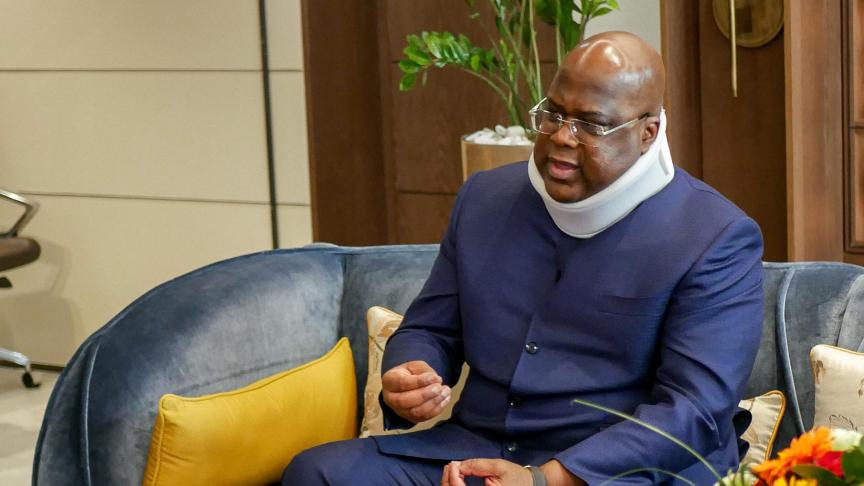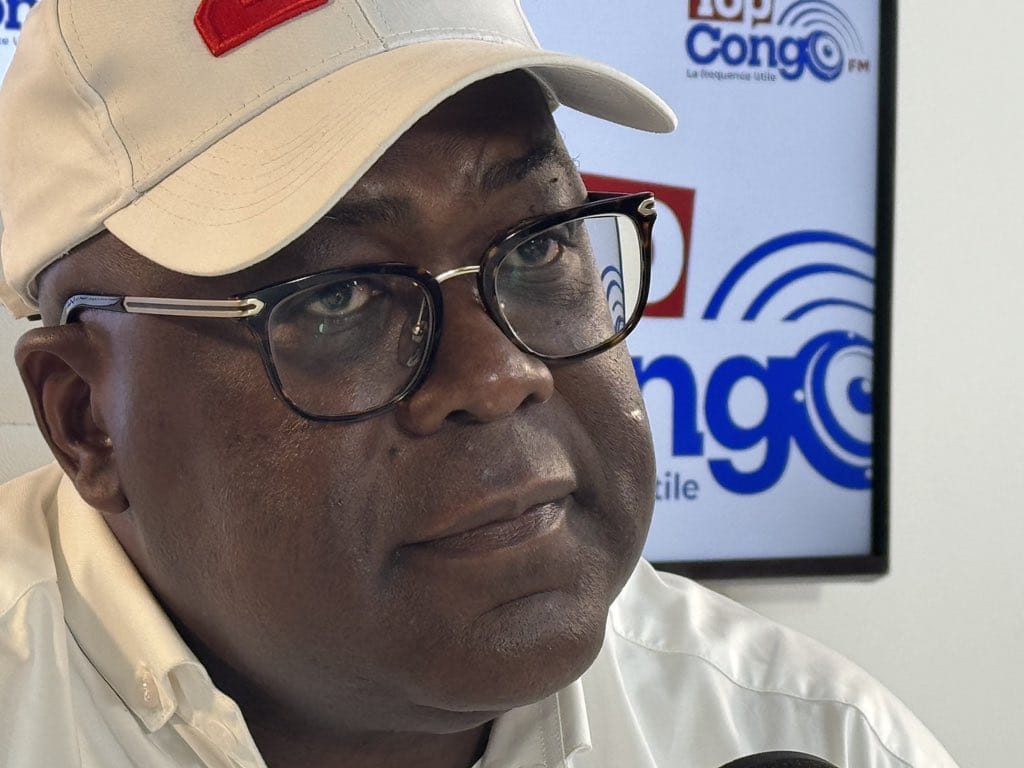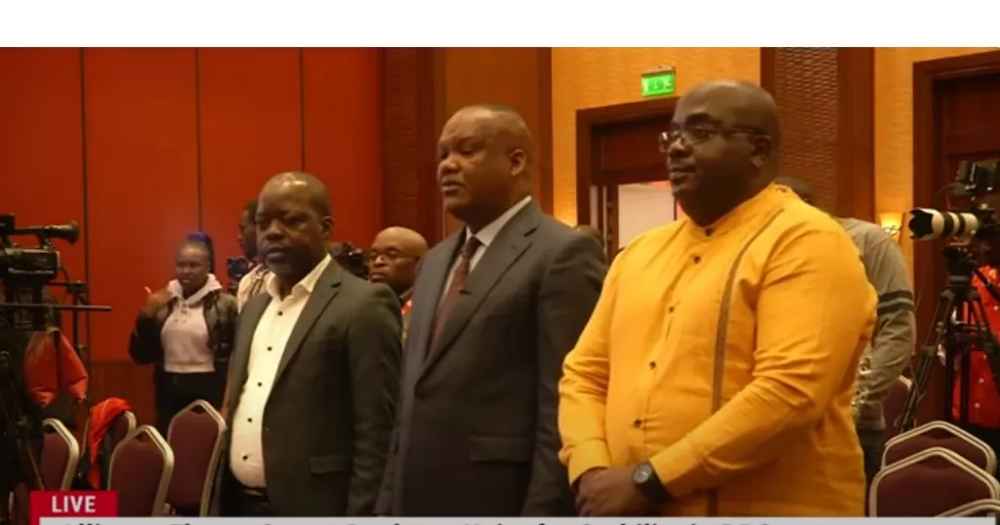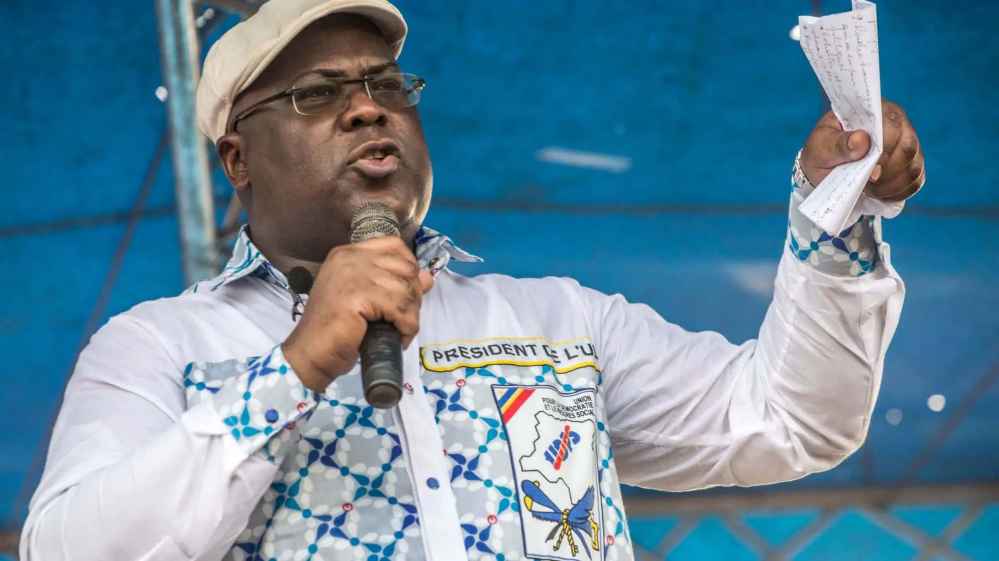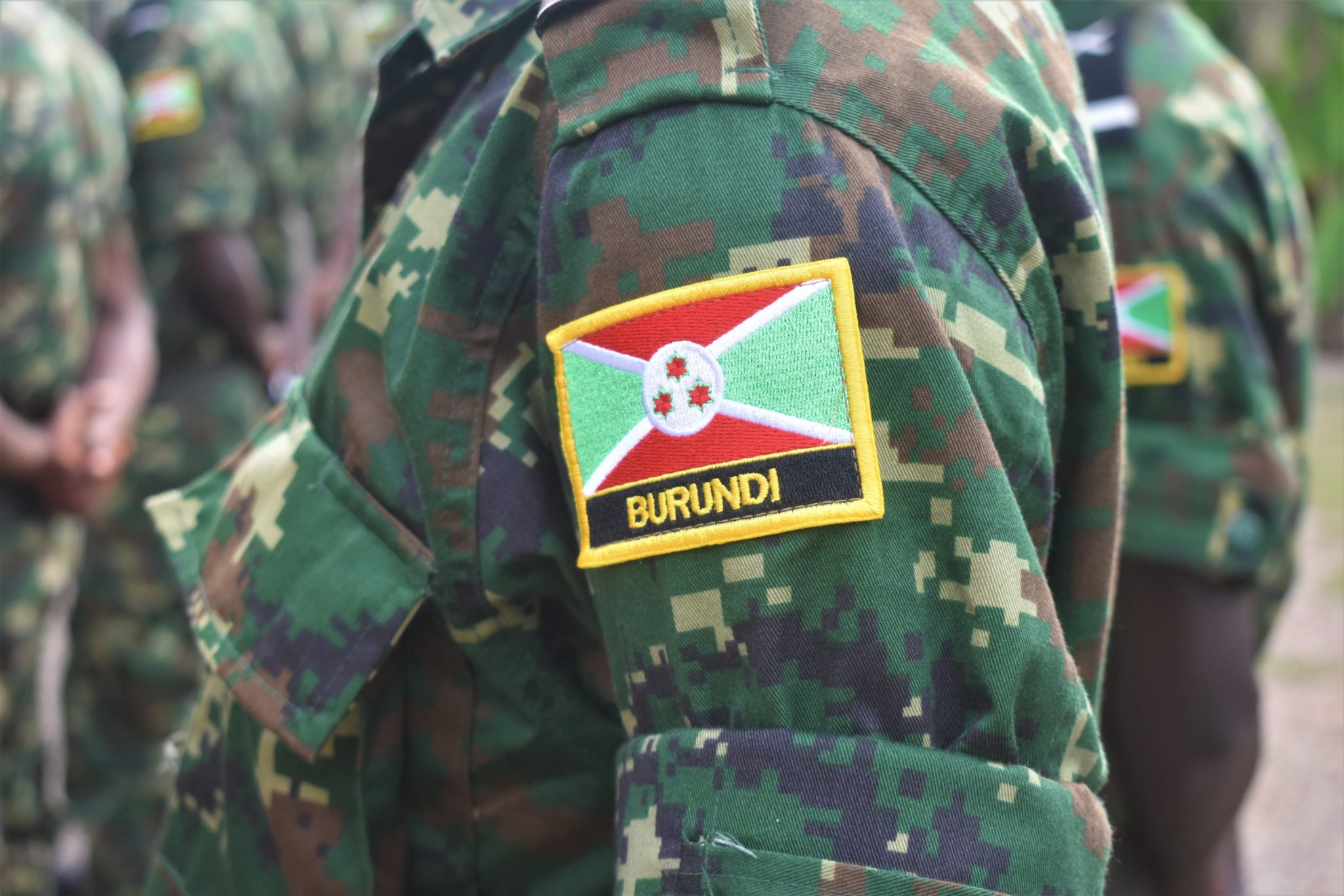Regional
If Tshisekedi’s first term worsened DRC's bad situation, second term will wreak havoc
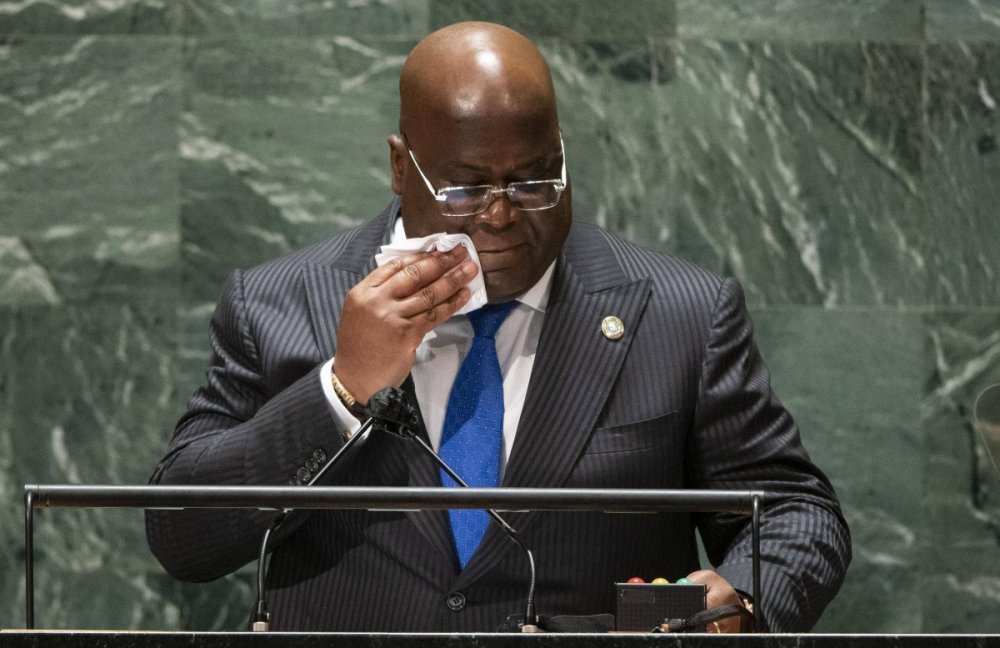
The Congolese Independent National Electoral
Commission (Ceni) announced plans to publish provisional results of the general
election, on December 31, even as early figures showed President Félix
Tshisekedi was going for another term in office.
The results have already been rejected by a number of
Tshisekedi’s challengers and the Church. Preliminary results showed that
Tshisekedi dominated every region of the vast country and his Sacred Union of
the Nation coalition members came out tops in legislative elections. Whatever
the opposition does, a large victory is expected for Tshisekedi. Already, out
of the 15.9 million votes counted by December 29, the incumbent was well ahead
with about 73 percent of the votes in the central African nation.
But has Tshisekedi delivered enough to win a second
term? Did he even, genuinely, win the election? Those are some of the questions
people, in and outside the country are asking. The answer to both questions is
is straight NO. And that's why riots are on in Kinshasa and other parts of the
vast country.
Tshisekedi’s popularity has declined over time, and
his re-election was not a given with the likes of Moise Katumbi, a former
Katanga province governor, in the picture.
Tshikedi’s administration is still grappling with
ongoing violence in eastern DRC, resulting from more than 30 years of
insecurity in the region.
Tshisekedi barely reined in corruption in the DRC, one
of the poorest countries on earth, despite its immense mineral wealth. The DRC
is the world’s leading producer of cobalt and the third largest producer of
copper – minerals used in manufacturing electronic gadgets and electric
vehicles but more than half of its 95 million people continue to live on less
than $2.15 a day.
As Tshisekedi
celebrates five more years of ruling the country, the Congolese people face a
disaster. Ever since he assumed office, in 2019, Tshisekedi’s first term was marked
with lack of a clear vision, incompetence, mismanagement of public resources,
corruption, and irresponsibility. Not much will change in his second term.
During his presidential campaign in 2018, Tshisekedi
listed a series of promises aimed at improving the lives of the Congolese population.
Unfortunately, after five years in power there is a different
story. Everything worsened.
There is no single promise that he fulfilled.
He vowed to end the security crisis, tackle
corruption, boost the country’s economy, and promote human rights but did none of
that.
The Congolese people were hopeful of positive changes
in their socio-economic conditions under Tshisekedi’s leadership. He deceived
them as he has not kept his word.
The 60-year-old politician manifested a surge of
corruption cases in government offices, especially among his close circle. In
September 2022, leaked videos went viral showing Vidiye Tshimanga, the special
strategic advisor to Tshisekedi, offering unlimited access to the country’s
mineral resources in exchange for bribes, including shares in the companies and
underhand paybacks, for himself and the president.
The inspectorate General of Finance (IGF) report on
April 27, 2023, revealed massive embezzlement of taxpayers’ money. According to the findings of an audit of the
government's payroll, the IGF noted numerous irregularities, with tens of
thousands of ghost employees.
The report stated that the monthly loss of earnings
suffered by the treasury is 148,999,749,440.95 Congolese francs ($66.2 million).
The Congolese public finance watchdog says that more than 145,000 paid agents
have incorrect, fictitious and fabricated registration numbers for payroll
purposes. Nearly $800 million is lost annually from the public treasury through
this kind of embezzlement, the IGF report concludes.
Tshisekedi’s incompetence and lack of coordination of
the security forces became an opportunity to armed groups that have increased
to more than 260 in the country’s east.
The DRC is grappling with renewed fighting in its
eastern region, as well as renewed tensions with Rwanda which Tshisekedi claims
is aiding the M23 rebels.
Tshisekedi failed to end the rebellion by declining dialogue with the M23.
The Congolese Independent National Electoral
Commission (Ceni) announced plans to publish provisional results of the general
election, on December 31, even as early figures showed President Félix
Tshisekedi was going for another term in office.
The results have already been rejected by a number of
Tshisekedi’s challengers and the Church. Preliminary results showed that
Tshisekedi dominated every region of the vast country and his Sacred Union of
the Nation coalition members came out tops in legislative elections. Whatever
the opposition does, a large victory is expected for Tshisekedi. Already, out
of the 15.9 million votes counted by December 29, the incumbent was well ahead
with about 73 percent of the votes in the central African nation.
But has Tshisekedi delivered enough to win a second
term? Did he even, genuinely, win the election? Those are some of the questions
people, in and outside the country are asking. The answer to both questions is
is straight NO. And that's why riots are on in Kinshasa and other parts of the
vast country.
Tshisekedi’s popularity has declined over time, and
his re-election was not a given with the likes of Moise Katumbi, a former
Katanga province governor, in the picture.
Tshikedi’s administration is still grappling with
ongoing violence in eastern DRC, resulting from more than 30 years of
insecurity in the region.
Tshisekedi barely reined in corruption in the DRC, one
of the poorest countries on earth, despite its immense mineral wealth. The DRC
is the world’s leading producer of cobalt and the third largest producer of
copper – minerals used in manufacturing electronic gadgets and electric
vehicles but more than half of its 95 million people continue to live on less
than $2.15 a day.
As Tshisekedi
celebrates five more years of ruling the country, the Congolese people face a
disaster. Ever since he assumed office, in 2019, Tshisekedi’s first term was marked
with lack of a clear vision, incompetence, mismanagement of public resources,
corruption, and irresponsibility. Not much will change in his second term.
During his presidential campaign in 2018, Tshisekedi
listed a series of promises aimed at improving the lives of the Congolese population.
Unfortunately, after five years in power there is a different
story. Everything worsened.
There is no single promise that he fulfilled.
He vowed to end the security crisis, tackle
corruption, boost the country’s economy, and promote human rights but did none of
that.
The Congolese people were hopeful of positive changes
in their socio-economic conditions under Tshisekedi’s leadership. He deceived
them as he has not kept his word.
The 60-year-old politician manifested a surge of
corruption cases in government offices, especially among his close circle. In
September 2022, leaked videos went viral showing Vidiye Tshimanga, the special
strategic advisor to Tshisekedi, offering unlimited access to the country’s
mineral resources in exchange for bribes, including shares in the companies and
underhand paybacks, for himself and the president.
The inspectorate General of Finance (IGF) report on
April 27, 2023, revealed massive embezzlement of taxpayers’ money. According to the findings of an audit of the
government's payroll, the IGF noted numerous irregularities, with tens of
thousands of ghost employees.
The report stated that the monthly loss of earnings
suffered by the treasury is 148,999,749,440.95 Congolese francs ($66.2 million).
The Congolese public finance watchdog says that more than 145,000 paid agents
have incorrect, fictitious and fabricated registration numbers for payroll
purposes. Nearly $800 million is lost annually from the public treasury through
this kind of embezzlement, the IGF report concludes.
Tshisekedi’s incompetence and lack of coordination of
the security forces became an opportunity to armed groups that have increased
to more than 260 in the country’s east.
The DRC is grappling with renewed fighting in its
eastern region, as well as renewed tensions with Rwanda which Tshisekedi claims
is aiding the M23 rebels.
Tshisekedi failed to end the rebellion by declining dialogue
with the M23.
The Congolese Independent National Electoral Commission (Ceni) announced plans to publish provisional results of the general election, on December 31, even as early figures showed President Félix Tshisekedi was going for another term in office.
The results have already been rejected by a number of
Tshisekedi’s challengers and the Church. Preliminary results showed that
Tshisekedi dominated every region of the vast country and his Sacred Union of
the Nation coalition members came out tops in legislative elections. Whatever
the opposition does, a large victory is expected for Tshisekedi. Already, out
of the 15.9 million votes counted by December 29, the incumbent was well ahead
with about 73 percent of the votes in the central African nation.
But has Tshisekedi delivered enough to win a second
term? Did he even, genuinely, win the election? Those are some of the questions
people, in and outside the country are asking. The answer to both questions is
is straight NO. And that's why riots are on in Kinshasa and other parts of the
vast country.
Tshisekedi’s popularity has declined over time, and
his re-election was not a given with the likes of Moise Katumbi, a former
Katanga province governor, in the picture.
Tshikedi’s administration is still grappling with
ongoing violence in eastern DRC, resulting from more than 30 years of
insecurity in the region.
Tshisekedi barely reined in corruption in the DRC, one
of the poorest countries on earth, despite its immense mineral wealth. The DRC
is the world’s leading producer of cobalt and the third largest producer of
copper – minerals used in manufacturing electronic gadgets and electric
vehicles but more than half of its 95 million people continue to live on less
than $2.15 a day.
As Tshisekedi
celebrates five more years of ruling the country, the Congolese people face a
disaster. Ever since he assumed office, in 2019, Tshisekedi’s first term was marked
with lack of a clear vision, incompetence, mismanagement of public resources,
corruption, and irresponsibility. Not much will change in his second term.
During his presidential campaign in 2018, Tshisekedi
listed a series of promises aimed at improving the lives of the Congolese population.
Unfortunately, after five years in power there is a different
story. Everything worsened.
There is no single promise that he fulfilled.
He vowed to end the security crisis, tackle
corruption, boost the country’s economy, and promote human rights but did none of
that.
The Congolese people were hopeful of positive changes
in their socio-economic conditions under Tshisekedi’s leadership. He deceived
them as he has not kept his word.
The 60-year-old politician manifested a surge of
corruption cases in government offices, especially among his close circle. In
September 2022, leaked videos went viral showing Vidiye Tshimanga, the special
strategic advisor to Tshisekedi, offering unlimited access to the country’s
mineral resources in exchange for bribes, including shares in the companies and
underhand paybacks, for himself and the president.
The inspectorate General of Finance (IGF) report on
April 27, 2023, revealed massive embezzlement of taxpayers’ money. According to the findings of an audit of the
government's payroll, the IGF noted numerous irregularities, with tens of
thousands of ghost employees.
The report stated that the monthly loss of earnings
suffered by the treasury is 148,999,749,440.95 Congolese francs ($66.2 million).
The Congolese public finance watchdog says that more than 145,000 paid agents
have incorrect, fictitious and fabricated registration numbers for payroll
purposes. Nearly $800 million is lost annually from the public treasury through
this kind of embezzlement, the IGF report concludes.
Tshisekedi’s incompetence and lack of coordination of
the security forces became an opportunity to armed groups that have increased
to more than 260 in the country’s east.
The DRC is grappling with renewed fighting in its
eastern region, as well as renewed tensions with Rwanda which Tshisekedi claims
is aiding the M23 rebels.
Tshisekedi failed to end the rebellion by declining dialogue
with the M23.
His new term, additional five years, is a disaster that will only add fuel to an already burning fire.


